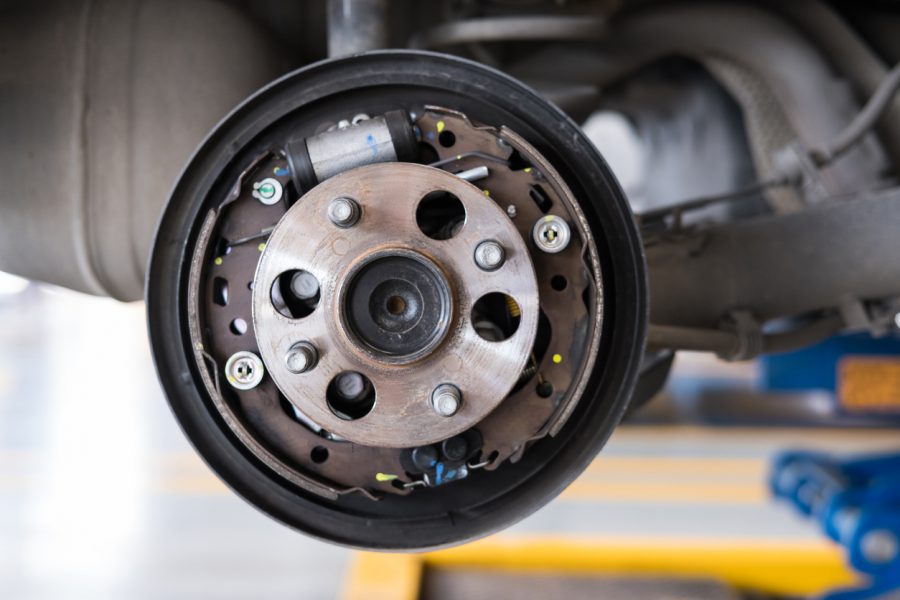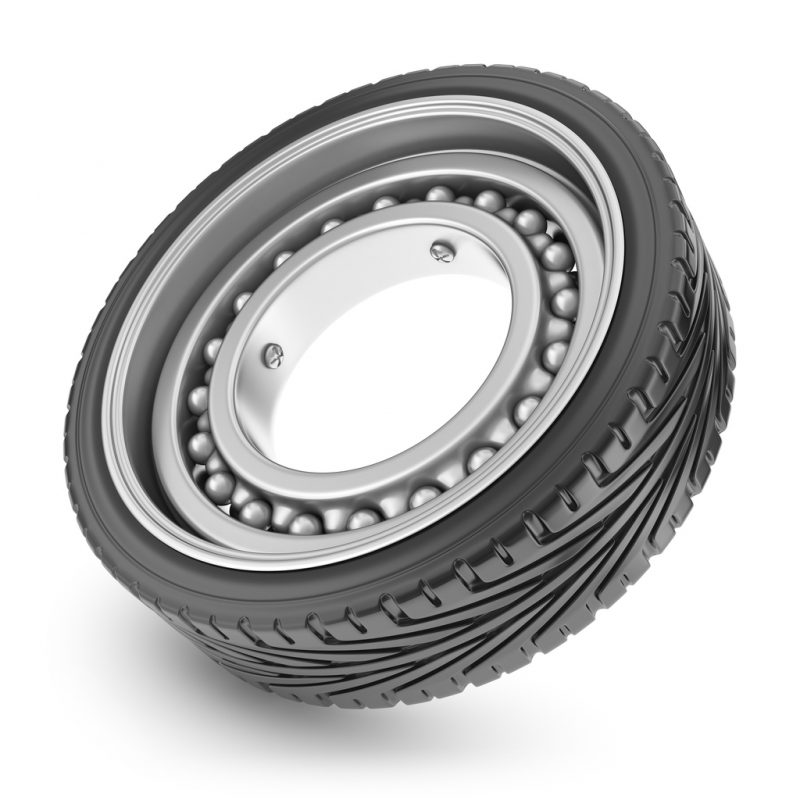
Car wheels look so simple, surely there can’t be much to fail? Actually plenty can go wrong from ropey balancing to worn or even broken wheel bearings. It’s often tricky to figure out what is and isn’t wheel bearing trouble but there are some giveaway signs. Read on to find out if that might be the problem with your car.
How do you know you’ve got a worn wheel bearing?
Although every wheel has bearings, it’s unlikely they’ll all fail at once. Chances are, one will wear out before the others. And there’ll be several tell-tale clues that this has happened.
You might see abnormal tyre wear on one wheel (although this might be caused by other things too). There could be a noise so listen out for a grinding sound that happens whenever the wheels are turning. You might even feel a vibration through the steering as the wheel with the worn bearing moves from side to side slightly on the hub.
Are worn wheel bearings dangerous?
The simple answer is yes. You may not notice a worn bearing. And if you do it might just be vaguely irritating. But if it fails, the wheel can seize and you might lose control of the car. If you’re in any doubt, take your car to a professional.
You can check if you’re feeling brave
The first thing to do is to see how your car drives when the gear change is in neutral. You should do this on a quiet road and make sure there’s no one behind you. If your wheel bearing is on the verge of failing, it’ll cause more friction. When the engine isn’t driving the wheels, you might notice the car slows down more rapidly than you might expect.
Another way to check is to jack the car up. However, you obviously can’t have the parking brake on or you may not be able to turn the wheel. For safety’s sake if you decide to do this yourself, park on a flat surface and have proper chocks for the wheels that are still on the ground. But it’s probably safer to leave it to the pros…
Take it to the garage…
The thing about failed wheel bearings is the symptoms are similar to other problems. Go to a garage that you trust, both to be honest and to diagnose the problem correctly.
Some might suggest replacing all your wheel bearings when it’s not necessary. Others might give you an honest opinion and recommend it because the age of the car dictates it’s the safest course. Or they might not recommend changing any other bearings because the car is such a banger something else will break before the next wheel bearing wears out! Every case really is different.
Another reason to visit a garage is that they have the proper equipment. They can simply put their car on a lift, raise it up and check the wheels quickly and above all, safely.

What’s going on when wheel bearings fail?
Bearings are a crucial part of every wheel, allowing the hub the wheel is mounted on to turn freely. Whether they’re on your kid’s inline skates or your car, wheel bearings are pretty much the same thing. Imagine a pair of different diameter metal rings, one inside the other, with a series of ball bearings sitting snugly between them and you’ve pretty much got it. The wheel is attached to these bearings which help it to spin round on the axle.
However, bearings lead a hard life. They take a pounding when a car goes along a rough road. They get water in them when it’s raining or you go through a deep puddle. And if your wheels aren’t balanced properly, it’s the – you guessed – bearings that bear the brunt from that constant uneven rotation.
The repair and how much it costs depends on which axle the bearing is on and the kind of car. But it requires removing the brakes and partially taking the wheel hub and axle apart so it’s not the work of a moment. Even so, it’s well worth having done for your safety and that of other road users.

John Price is part of Green Flag’s team of automotive technical support engineers
Thank you – all goood. I am adding the following as I have not found a general email address
You often get a rumbling noise when driving along which changes with the road speed, – just another clue!!